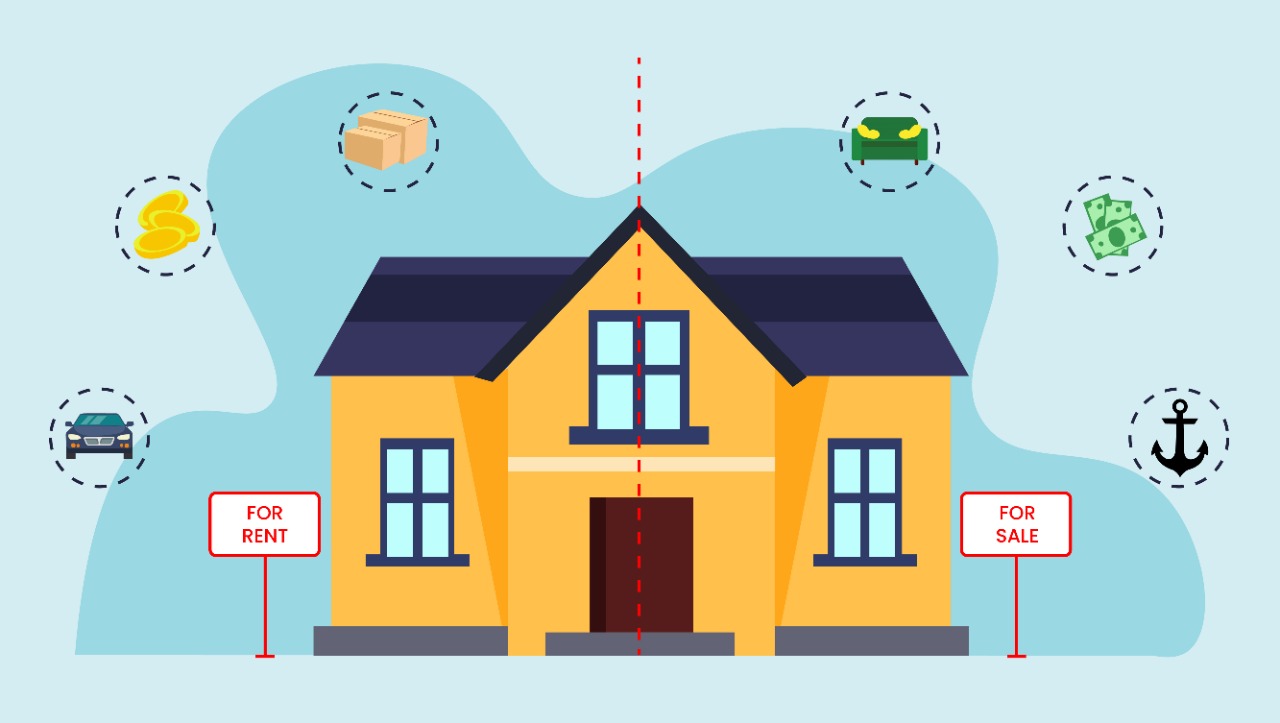
Whether to rent or to own the place in which you reside may be a major decision. It doesn’t just affect the amount of money you are left with at the beginning of the month, it also affects your lifestyle and the size of the savings you accumulate over the years.
Of the two options, the bias often veers towards ownership. It is a business sector for everybody from mortgage lenders to asset agents to home improvement stores. Then, we are bombarded with the message that being a house owner is the key to happiness. But owning isn’t universally better than renting, neither is renting always simpler than owning. Consider the pros and cons of working out whether renting or owning is best for you.
Rental Housing: Rental housing refers to a property occupied by someone apart from the owner and the tenant pays a periodic mutually agreed rent or basically a fixed sum of money to the owner.
Type of Rental Housing:
- Formal and Informal: In the case of formal rental housing, the owner and tenant enter into an agreement and register it with the competent authority. Whereas there's no such registered agreement under informal rental housing.
- Market-driven: This can be provided by individual owners or institutions or private rental housing operators wherein owners finance the development and management of the housing.
- Need-based: This can be supported by the requirement of various groups like students, teachers or working folks, who have a source of income, but affording the rent is difficult for them.
- Public: This refers to social rental housing owned by the government, local authorities or its entities.
- Social: Here, the rent is ready at a grade below the market rates to form it affordable for poor people (economically weaker section and low-income group). It is owned and managed by the government, local authorities, public sector undertakings, non-profit organizations, private or any other charitable institutions.
"You are throwing away money each month" is the biggest myth of renting a house. Not so. First of all, you pick an area to measure and it always costs money, in one way or another. Second, while it is true that you just are not building equity with monthly rent payments, you furthermore might not be building equity with much of the cash you will put into owning a house.
Why should you rent a house?
- You will be able to move without penalty when your lease ends.
- The truth is the cost of homeownership is higher.
- Renting may cost a little less, even over the long run.
- It is flexible in nature.
- You are not cursed with any loss.
- No land tax to fret about.
- Renting helps you avoid some major expenses.
- Renters insurance is far less costly than homeowners insurance.
Owning the House:
The fact of owning your home has always been part of everyone’s dream. Many people consider owning a home as the right and obligatory thing to do without considering the risks and benefits of it.
Why should you own a house?
- You will be able to build equity
- It forces you to avoid wasting
- It increases your net worth
- Increment in the value of overtime
- It is more stable
- Stronger social ties to your community
- You will have an opportunity for passive income
- Sense of security and pride in homeownership
- No need to face increasing rentals
Decision Making:
Which option is best for you is not just about the money, it is also about comfort and your vision for your life. Ignore folks that tell you that owning always makes more sense in the long run, that renting is abandonment money, that it makes more sense to shop for if your monthly mortgage payment would be the same as your monthly rent payment. Housing markets and life circumstances are too varied to form blanket statements like these.
Still, despite the added expense and further chores related to owning a home, many of us chose it over renting. It provides a more permanent place to lift children and infrequently offers the sole thanks to have, or create, the kind of residence people want. Ultimately, the choice to rent or to have isn't just financial, it’s also emotional.
